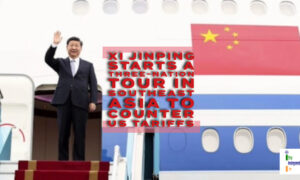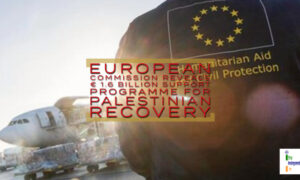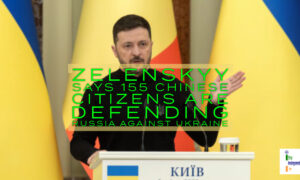
The USA wants EU to increase their defense budget in order to face the escalating global security issues
The United States (U.S.) Secretary of State – Marco Rubio has assured its North Atlantic Treaty Organization (NATO) allies of Washington’s commitment to NATO but urged them to spend more on their defense, to meet the growing global security challenges.
His remarks came during a high-stakes meeting of the alliance’s Foreign Ministers in Brussels. Over the past few months, the President of the U.S. – Donald Trump, has been vocal about NATO allies not spending enough on defence.
Speaking on the occasion, Rubio said, “The United States is in NATO. The United States is as active in NATO as it has ever been.”
Talking about Trump, he said, “He is not against NATO. He is against a NATO that does not have the capabilities that it needs to fulfil the obligations that the treaty imposes upon each and every member state.”
Sharing his thoughts on X, he posted,
Peace isn't free. It’s time for our Allies to increase defense spending. Thanks to @USNATO and @USAmbNATO for your work to make sure NATO is stronger together. pic.twitter.com/Cog58cwRjk
— Secretary Marco Rubio (@SecRubio) April 3, 2025
Rubio’s remarks come at a time of deep unease across Europe, as allies grapple with the implications of Trump’s call for NATO countries to raise defence spending to 5% of GDP, more than double the alliance’s current target of 2%. Currently, only 23 of NATO’s 32 members meet the 2% threshold. Larger economies such as Italy and Spain fall short, with estimated spending at around 1.5% and 1.3% respectively.
He also said that NATO allies don’t need to do this immediately in a year or so, signalling a degree of flexibility. His message struck a more measured tone than previous U.S. statements, which some European officials had interpreted as a potential disengagement.
“No one expects that you’re going to be able to do this in one year or two. But the pathway has to be real,” added Rubio.
The Foreign Minister of Portugal – Paulo Rangel, expressed skepticism about the proposed 5% target, calling it “probably too high” for now. Portugal, which spent 1.55% of GDP on defense last year, first needs to get to 2%, and then have a plan to meet a new target the alliance will set at its next summit.
Despite lingering concerns, Rubio’s visit appears to have helped ease immediate fears about a U.S. withdrawal or diminished role within the alliance, which has served as the cornerstone of European security for over 75 years.







